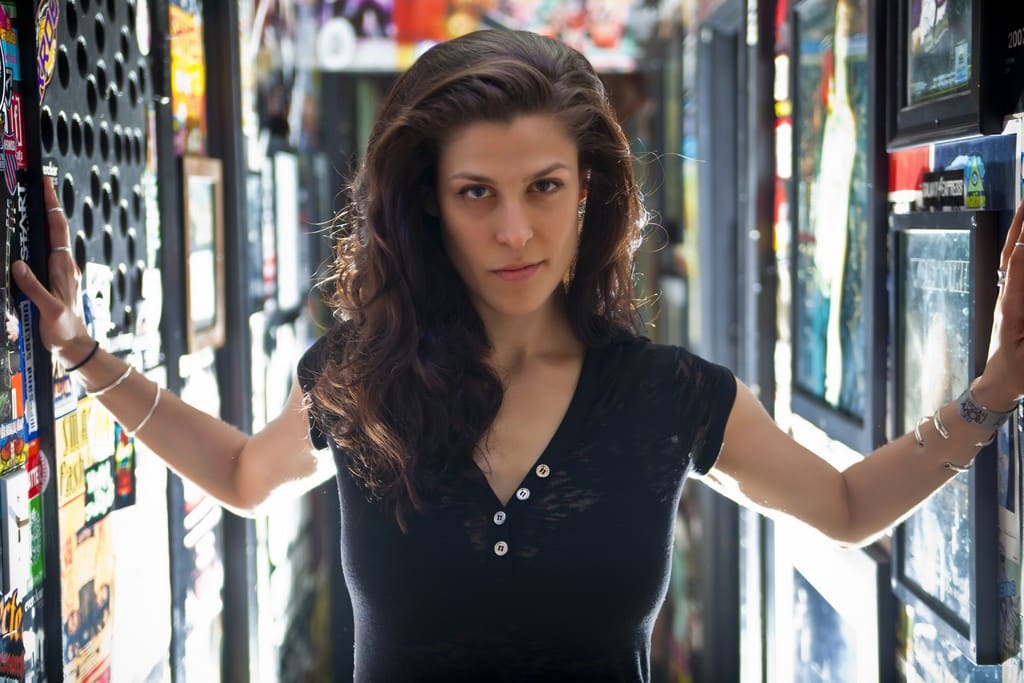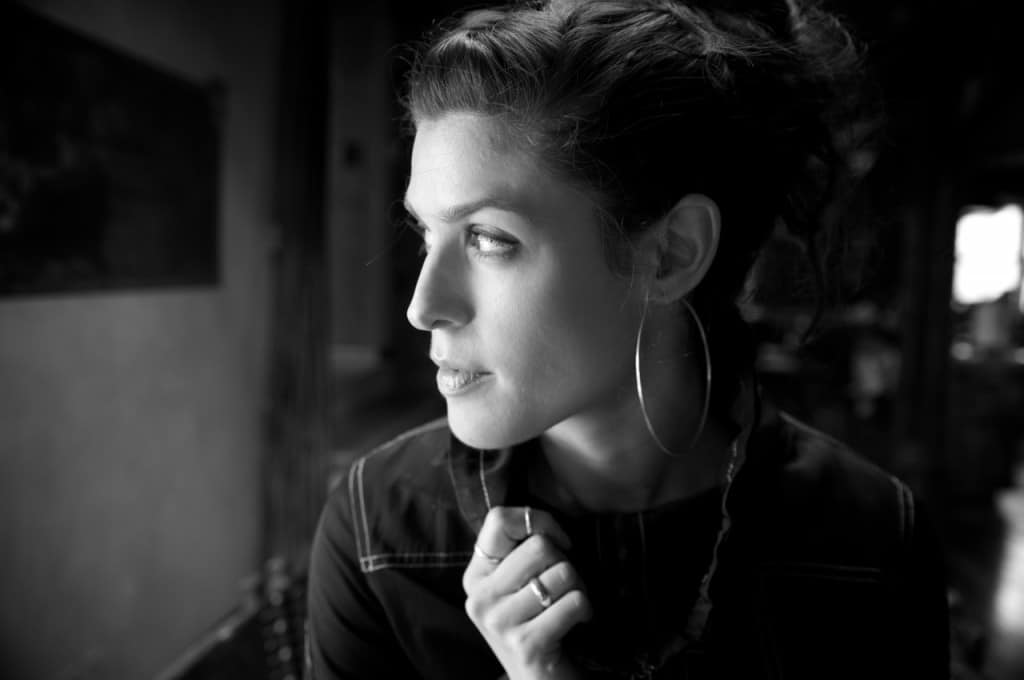The portrayal of women’s sexuality in music has stirred vehement debate since MTV began. Hip-hop is perhaps known as the only genre with lyrics that displays the duality of women – the b**** and ho or the proper woman. In Byron Hurt’s film Hip-Hop: Beyond Beats & Rhymes he asserts that he would always defend hip-hop but as he grew to learn more about violence, sexism, and homophobia he began to witness a pattern in the very music which he loved and subsequently they became unacceptable to him. As hip-hop music expanded, so did the demand for hypermasculinity in which a man couldn’t display any vulnerability. Hip-hop became a single perspective; that it was okay to be violent, homophobic, and sexist.
Hip-hop artist Dessa provides an alternative view on the negative vernacular and ideas which shape both hip-hop and rape in a Nobel Peace Prize forum from March 2nd. The former technical writer began as a slam poet and was brought to the attention of D.J. Yoni with whom she formed the group Medida.
Yoni’s influence introduced her to a vast amount of hip-hop culture and the group Doomtree which she subsequently joined in 2005. During that same year she released her debut solo EP album called False Hopes. She later released a book of creative non-fiction entitled Spiral Bound and also formed an all-female a capella group called The Boy Sopranos. She continues to make music with Doomtree while simultaneously teaching at the Institute of Production and Recording and the McNally Smith College of Music.
The self-described “practitioner of hip-hop and rap” was offered a personal invitation from Executive Director, Dr. Maureen Reed to speak at the 24th annual Nobel Peace Prize Forum. The Tandem Project which has associated itself with the Nobel Peace Prize committee since 1986 and its conferences usually addresses Tolerance for Diversity of Religion or Belief.

While Dessa battled the aftermath of laryngitis she effortlessly and thoughtfully delivered a sound and intelligent discourse titled Mic Lines: Art, Ethics, and their Contested Connections about the ramifications of hip-hop and a message that hip-hop artists aren’t removed from their moral authority just because they know how to rhyme. One poignant question she asks the audience is, “You ask if hip-hop is good or bad? I say yes.”
Dessa, in a telephone interview sometime after her panel, further elaborates her views and how her life has been affected by some of the problems of hip-hop.
Jessica Thomas: How did you feel doing the Nobel Peace Prize Panel?
Dessa: When being asked to present I was very flattered by the invitation. But, as I mentioned in the speech itself I was pretty confident that there were a couple of other presenters in the Minneapolis area who could speak of the topic very well. I would say that my feelings were a measure of excitement and apprehension. You know, performing nerves. But, also, resignation isn’t quite the right word. I knew that I meant what I had to say. But, I knew that what I said wouldn’t make me anymore popular. It was a little bit of that I suppose. I was expecting a bit of feedback from the hip-hop community.
JT: Do you feel that you have had impediments since your panel?
Dessa: Sure. Yeah. I mean, I’ve received some friction and negative reactions. I was more surprised by the positive reactions the day of the show, after I was off-stage and in the weeks following. It really surprised me that anyone had bothered to log in to watch the presentation. So, I knew there would probably be a bit of resistance. But, I was really encouraged by how much positive response there was from a lot of young people, especially the college crowd and the gay community.
JT: You stated that your panel was “A Practitioner’s Perspective” and that you don’t consider yourself a hip-hop scholar. From your own perspective, how has misogyny affected you? Not just in music, but also in your personal life?
Dessa: You know I think I’ve been spared a lot to be honest. I don’t feel like I’m the victim of overwhelming misogyny in my personal life or my career. I have a job that drives me nuts which I really, really love. My objection to misogynistic messaging wasn’t on the grounds that I’m a victim of it. I think that when you actively market highly misogynistic content to fourteen year old girls, therein lays the problem.
JT: Regarding the email you posted on your Facebook page and your response about the language rappers utilize in their music, do you think there is a line for when freedom of speech becomes a privilege or do you think it remains a right?

Dessa: I actually don’t feel like that’s my call to make. The reference that I made was literally to the First Amendment. The reason that I brought up that argument was because I wanted to note the fact that the hope of my conversation would be smaller than the constitutional discussion of free speech. The question is: Am I going to support that? Is there room to have conversation on whether or not that is appropriate? I would argue for their constitutional right to say words that I have the largest of problems with. Culture needs dissenters, even when the dissenters are foul. I don’t think it’s up to me to decide what is privileged or protect speech because the Constitution does that. My question was about consumers spending and less about constitutional entitlement.
JT: Do you believe that free speech and capitalism should come with more moral obligation, especially when it pertains to music?
Dessa: Not quite. As a woman who is now very happily operating the bottom half of middle-class America, how I spend my money is my decision. Maybe there is a reason to give moral consideration. Our right to free speech is almost like our foundation on which we need to assemble and talk. I have a right to say a lot of foul shit, but the reason that I probably won’t I is because I have strong set of principles and values which guide what I say and do. I don’t think that just because I have freedom of speech, I have special moral responsibility. I do so based upon my moral compass, my personality, and the content of my character.
JT: Where do you think the line between aestheticism and bias exists? For example, in your panel, you mentioned that it is inherent in the hip-hop to use the language for artistic expression (i.e. some artists will be blatantly homophobic and sexist). Where is that line?
Dessa: I was discussing the bias of listeners. We [the listeners] imported our own racial bias when we decided whether or not there was a real menace to that music or whether it set a real standard for violence or objectionable conduct. I would say there is no line. There isn’t a spectrum. I think the real question is, when does your art become so prejudiced that it ceases to become good art. Even if it is good art, I still make the decision to whether or not I wish to support negative content.

What does the future hold for Dessa?
In 2011, Dessa officially released her sophomore album titled Castor, the Twin under Doomtree featuring a single titled “The Beekeeper” which will lead into her 2013 album. Castor, the Twin reveals new arrangements and live instrumentation of her previously released songs that still reflect her unique and eclectic personal musical nuances with an added orchestral sound. The title of her album references the twin demi-god brothers of Greek and Roman mythology named Castor and Pollux who in combination were known as the Dioscouri who helped mankind. Dessa is currently on tour.
Additionally, the cruelty-free cosmetic company Elixery recently released a matte red lipstick titled “Dessa”, and for every pre-order made on the Doomtree site, Dessa will donate one extra dollar to the non-profit organization CARE.
To learn more about Dessa, please visit the Doomtree website.
